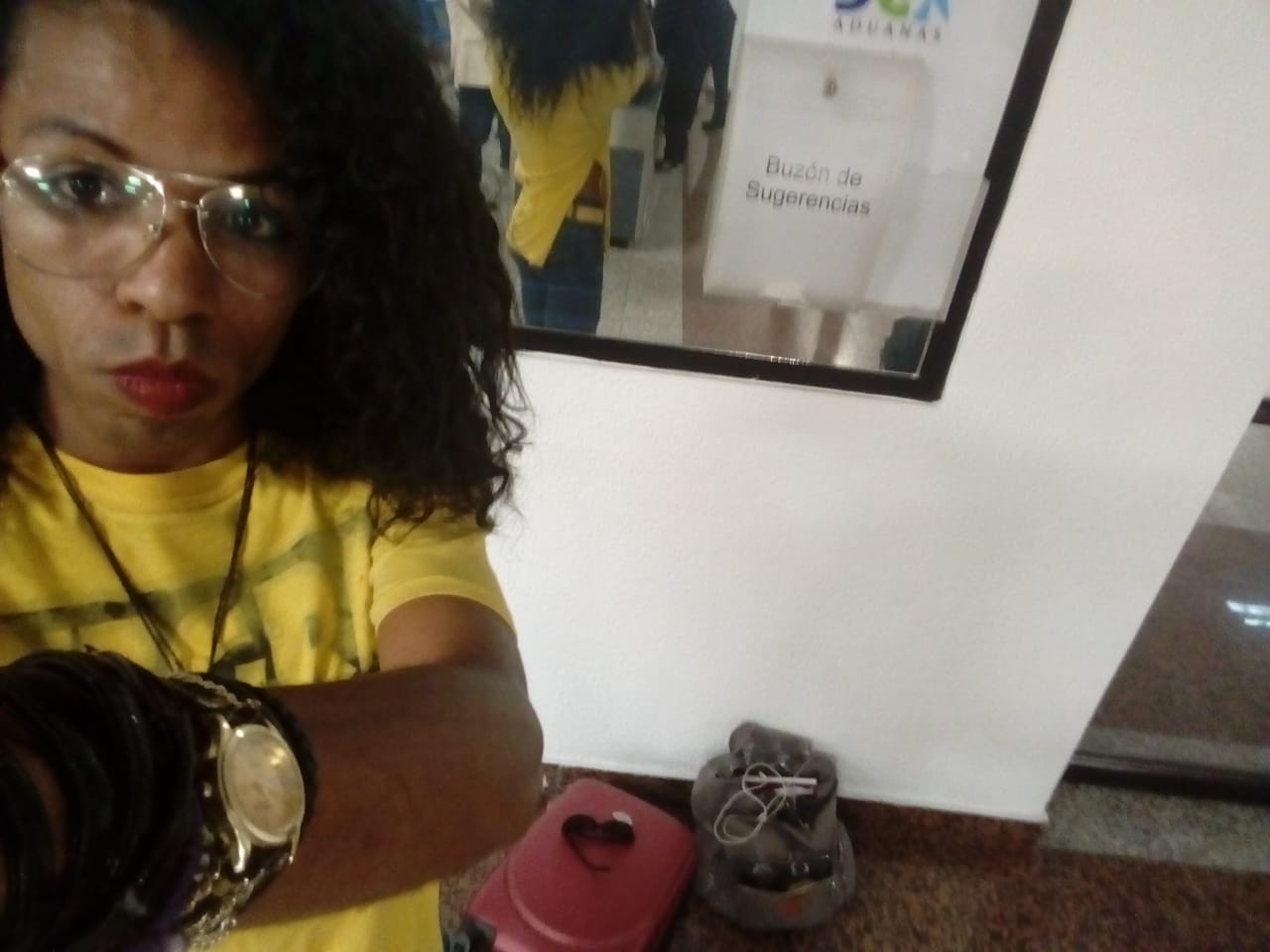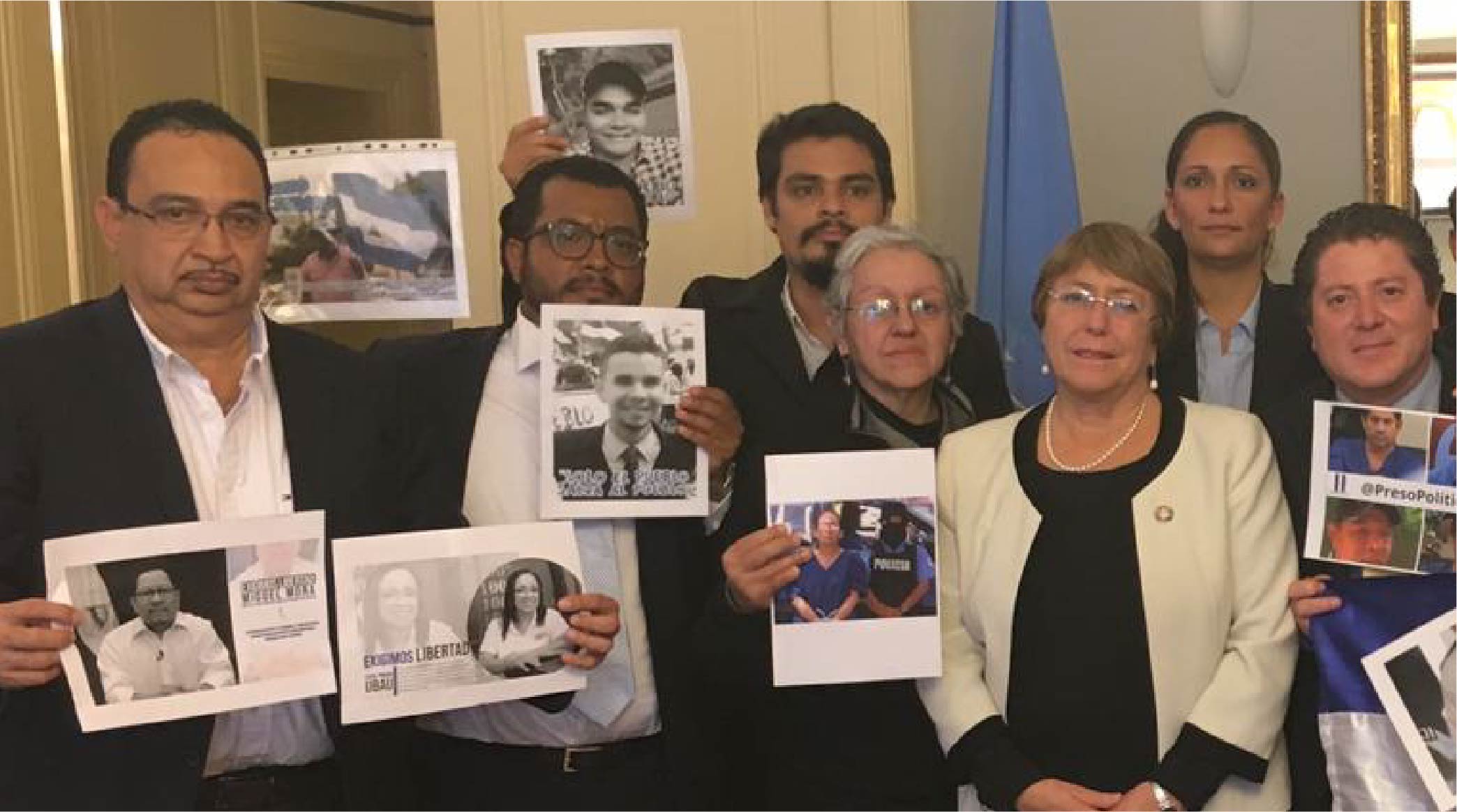“The situation in Nicaragua continues to be critical,” says the OHCHR
Geneva, July 10th 2019. The United Nations Deputy High Commissioner for Human Rights, Kate Gilmore, said today before the UN Human Rights Council that the situation in Nicaragua remains critical: […]

Geneva, July 10th 2019. The United Nations Deputy High Commissioner for Human Rights, Kate Gilmore, said today before the UN Human Rights Council that the situation in Nicaragua remains critical: authorities continue to repress peaceful protest and dissent, at least 80 people who participated in protests remain in detention, human rights defenders and community leaders continue to be threatened and harassed, and journalists continue to be targets of threats and censorship.
“One year after the violent repression of nationwide demonstrations, which resulted in more than 300 people killed, 2,000 injured and over 70,000 people going into exile, human rights violations committed in that context remain unaccounted for”, explained Gilmore, in an oral update held this Wednesday.
This update takes place as a follow-up measure to the resolution “Promotion and protection of human rights in Nicaragua”, approved on March 21, which asked the United Nations High Commissioner for Human Rights, Michelle Bachelet, to prepare oral and written updated reports about the situation in Nicaragua.
Recent events
Kate Gilmore brought up a series of events that have happened recently in Nicaragua, including the release of 442 political prisoners, of whom 106 were released under the questioned Amnesty Law. However, the OHCHR has received information that more than 80 people are still detained.
#Nicargua: We urge the release of all individuals arbitrarily detained for peaceful protest or dissent. We also call for prompt, impartial & effective investigations into torture allegations and violence in custody: https://t.co/K2npvFnt4X @OACNUDH
— UN Human Rights (@UNHumanRights) 10 de julio de 2019

“We urge the release of all individuals arbitrarily detained for their participation in the protests or for expressing dissenting or critical views, including those under alternative measures to imprisonment,” she stressed, reiterating the call “for prompt, impartial and effective investigations into these torture allegations and violent events in custody.”
She expressed concern about the arbitrary actions of the National Police, which continues to impede the citizen’s right to demonstration, stating that according to non-governmental sources, since mid-March 2019, more than 500 people were arrested by police officers while trying to organize protests in several cities, although the majority remained in custody for a few hours and were then released without charges.
She also referred to the situation of human rights defenders and community leaders who continue to be the target of attacks, threats, harassment and constant surveillance, and the fact that the authorities have not yet re-established the legal status and assets of 9 civil society organizations that were arbitrarily outlawed in November and December 2018.
In addition, she emphasized that “violations of the right to freedom of expression, including freedom of the media, continue to affect journalists and other media workers, and media outlets.”
The Nicaraguan State continues to deny responsibilities
The Deputy High Commissioner also regretted that the Nicaraguan Government continues to deny the responsibility of state agents or pro-government armed elements in the acts of violence committed last year. “It is crucial to ensure accountability without any exception, to ensure victims’ right to truth and reparation, and to determine the guarantees that the State will put in place to avoid the recurrence of human rights violations,” said Gilmore.
Nicaragua tells the UN Human Rights Council: “Nicaragua is the safest country in the region. There is no persecution of persons or organizations in human rights activities.”
— UN Watch (@UNWatch) 10 de julio de 2019

In fact, Nicaraguan Deputy Foreign Minister Valdrack Jaentscke, who participated in the session of the Human Rights Council, repeated the government’s argument that in Nicaragua there was a failed coup attempt that was brought under control to “consolidate peace and resume the path of progress and wellness”. In addition, he said that in Nicaragua there is no persecution of human rights defenders.
On the latter, the Nicaraguan Center for Human Rights (CENIDH, for its initials in Spanish) said in a statement published after the session of the Human Rights Council, that the Nicaraguan Deputy Foreign Minister “lies”, since CENIDH itself is one of the “victims of a vengeful persecution, usurpation of property and cancellation of legal personality,” which has forced the “exile of several human rights defenders, and those who continue to exercise in our country the right to defend rights face a hostile environment, disqualification, stigmatization and threats”.
Delegations opined
Most of the delegations that expressed their views after the update on Nicaragua requested the release of political prisoners who are still imprisoned and asked the Nicaraguan government to resume the national dialogue in good faith, to guarantee the independent work of civil society organizations, and to carry out impartial investigations into the violent acts committed since April 2018, as well as to allow the return of an OHCHR mission to the country.
That was the case of the delegation of Argentina, which spoke on behalf of Brazil, Canada, Costa Rica, Chile, Colombia, Ecuador, Paraguay and Peru; and others such as Croatia, Uruguay, Spain, Germany, Mexico, Australia, Finland, Switzerland, Belgium, Georgia and Barbados.
“We are worried about the persistence of acts of violence, as well as new forms of repression and human rights violations. It is also alarming that acts aimed at preventing the work of human rights defenders, journalists and the media continue,” the Uruguayan delegation said.
The representative of Spain also expressed concern about the Amnesty Law, which “may condition the release of prisoners and serve as a basis for possible situations of impunity in the face of human rights violations.”
Bolivia, Cuba, Russia and Venezuela supported the Nicaraguan Government and argued that the “self-determination of the people” and “non-interference” in internal affairs should be respected.
Civil society, on the other hand, such as the International Federation of Human Rights (FIDH, for its initials in Spanish) and CIVICUS also echoed the demands of the Nicaraguan people and participated in the debate within the UN Human Rights Council.
Statement
Race and Equality joins the call of the OHCHR and the diplomatic missions that support the human rights of Nicaraguans, to the Government of Nicaragua to comply with the international commitments it has signed and proceed to the full and unconditional release of the political prisoners who continue to be incarcerated, to resume the dialogue with the Civic Alliance for Justice and Democracy in good faith and with the intention of honoring the agreements signed there, to restore the rights of citizens that have been violated and restricted in violation to international standards for more than fourteen months, and to investigate the violent events that occurred since April 2018 and punish those responsible so that victims and their families have access to justice.

